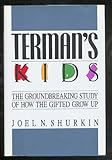A very astute question. IQ scores are specific to a particular test taken at a particular time, even when comparing IQ scores according to today's standard score definition of IQ for test-takers taking several tests very close together in time.
http://en.wikipedia.org/wiki/Intellectual_giftedness#Identif...
(See the sortable table, with reference to the original publication, at this page anchor location on Wikipedia. The same table appears at the page anchor link below. ALL of the Wikipedia articles on human intelligence and IQ testing need a lot of updates, because they have been subject to frequent edit-warring, but that table is quite useful.)
http://en.wikipedia.org/wiki/Ceiling_effect#Validity_of_inst...
Nobody has an IQ score from more than about a century ago. The current standard score definition of IQ, performance on a cognitive test with the population median set at 100 and performance two standard deviations above the median being called IQ 130, began with the Wechsler adult tests in the 1950s and spread to child testing by the 1970s, and is now pretty nearly universal. But even with that definitional issue kept straight, an individual person's IQ score can bounce up and down over time, and by any kind of testing theory we can never be completely sure of a person's "true" score, as any score on any occasion of testing is an estimate of the test-taker's behavior on other occasions or with other item content. Honest IQ test-givers report scores with an error band around the score, as has always been done, for example, by the psychologist who has tested my children for appropriate educational placement.
The very excellent book Terman's Kids: The Groundbreaking Study of How the Gifted Grow Up by Joel N. Shurkin
http://www.amazon.com/Termans-Kids-Groundbreaking-Study-Gift...
gives the full back story to the silly estimates you see of historical figures who lived before the era of IQ testing, which were mostly made up by Terman's collaborator Catherine Cox. Her procedure was justifiably laughed at by Shurkin as he described it: she counted the lines in biographical reference works on different historical figures, and supposed that the people in history who got the most ink probably had the highest IQs. There were always plenty of anomalies in her results from the very beginning, and no one takes them seriously anymore.
http://www.amazon.com/Termans-Kids-Groundbreaking-Study-Gift...
* Terman's Gifted Kids: http://www.amazon.com/Termans-Kids-Groundbreaking-Study-Gift...
* Harvard : http://www.theatlantic.com/doc/200906/happiness
The IQ scores claimed for these historical figures would have to be very strenuously disputed, because most of those persons never took an IQ test. The book Terman's Kids
http://www.amazon.com/Termans-Kids-Groundbreaking-Study-Gift...
by science writer Joel Shurkin, the first independent researcher to have access to the Terman longitudinal study files, explains the fanciful way in which those figures were arrived at. They were not validated by the member of Terman's team who made up those historical guesses at the IQ scores of people dead long before IQ tests were ever used.
Have any of you ever wondered how lists like this are compiled? It's laughable when you look at what was actually done to make these unvalidated guesses.


The Hacker News participant who kindly shared the article that opens this thread is a user whose user name I recognize from the many good articles he submits for discussion here. That said, permit me to not entirely agree with the opinion expressed by the Canadian teacher profiled in the article that "our most brilliant children are among our most vulnerable." That is actually not what the research shows. I agree with the several comments posted before this comment that say that age-segregated, lockstep curriculum school[4] is a particularly toxic environment for gifted learners, and not a good environment for any learner. But I learned, after majoring in Chinese language in university and living in east Asia after graduation, that there are varying cultural perspectives on how a smart person fits into human society. Growing up in the United States, in junior high I read a story by Philip K. Dick, which I have tried to find again but have not yet found in his collected writings, in which he expressed the opinion that the higher one's IQ is above the population median, the fewer true friends one can have, an opinion expressed in a top comment in this thread. I fully agreed with that opinion when I was a child, and it became a self-fulfilling prophecy, as I isolated myself from "average" people in my school and neighborhood environment. But when I lived in east Asia, I learned that Confucius said, 三人行,必有我師焉 ("wherever three persons are walking, my teacher is surely among them"). The east Asian Confucian philosophers were very clear than human beings vary in how smart they are, but they also deeply believed that any human being can learn from any other human being. The job of a smart person is to use brainpower to understand other people and make society better. As soon as I adopted those east Asian perspectives, I found it much easier to make friends. Now I proactively tell my four children and the gifted young people I teach in my supplemental mathematics program that they can find rapport with anyone, if they are willing to listen. And I spread this same message internationally among parent email lists and social media groups for parents of gifted children.
To sum up, the article makes strong claims that high IQ is strongly associate with social maladjustment and psychological disturbance. That is not an invariant property of high IQ, and I know many exceptions. All research on the topic confirms that many high-IQ people do fine in social interaction with other human beings, and some who do not start out that way can learn better social adjustment. School has a lot of toxic features for most learners,[5] but gifted children need not fear being social misfits for life.
[1] http://www.davidsongifted.org/youngscholars/
[2] http://cty.jhu.edu/set/
[3] http://www.amazon.com/Termans-Kids-Groundbreaking-Study-Gift...
https://alumni.stanford.edu/get/page/magazine/article/?artic...
[4] http://learninfreedom.org/age_grading_bad.html
[5] http://www.johnholtgws.com/
http://learninfreedom.org/system.html